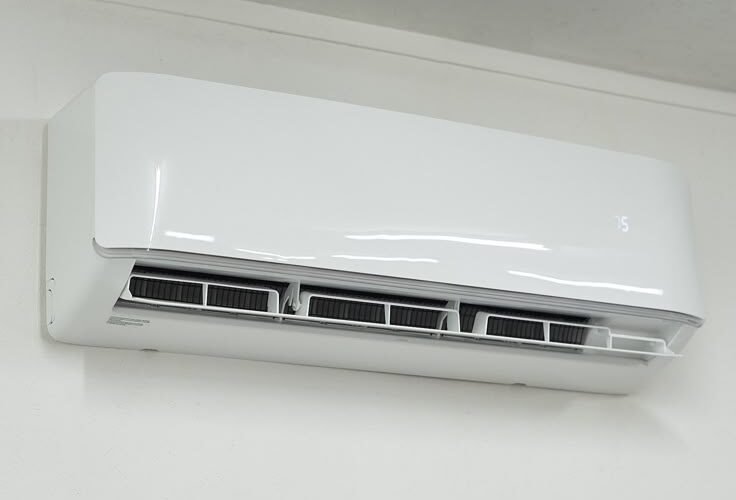AC in Summers: Buy or Rent?

As summer temperatures rise, the demand for air conditioners surges. People seek relief from the oppressive heat, and AC units offer that comfort. However, many households face a pressing decision: should they buy or rent an air conditioner? Each option carries its own set of advantages, costs, and responsibilities. Choosing wisely depends on factors such as duration of stay, financial flexibility, maintenance concerns, and long-term needs.
Let’s explore the pros and cons of both buying and renting an AC unit, allowing you to make a confident and informed decision this summer.
Understand Your Cooling Needs
Before you decide whether to buy or rent an AC, assess your usage. Do you need cooling for just one room or multiple spaces? Will you use the air conditioner for a few months or year-round? Temporary use often leans in favor of renting. Long-term usage makes purchasing more logical and cost-effective.
Consider the size of your living space. Small rooms require lower-tonnage units, while larger areas demand more powerful systems. Calculate your cooling requirements before browsing prices or rental packages.
Buying an AC: Pros and Cons
Advantages of Buying
- Long-Term Savings
When you buy an AC, you make an upfront investment. Over time, this decision reduces your annual cooling expenses. You won’t pay recurring rental charges or worry about rate hikes during peak seasons. - Wider Choice of Brands and Features
Buyers enjoy access to the latest technologies. Energy-efficient models, smart controls, and inverter ACs become available. Rental options usually limit you to older or basic models. - Ownership and Customization
As the owner, you choose how to install and maintain your unit. You can pair it with power-saving stabilizers, adjust timers, and use branded filters. No rental company can restrict your customization. - Increased Property Value
A well-installed, energy-efficient AC can enhance property value, especially in urban areas. Tenants or future buyers view it as a convenience, not just a luxury.
Disadvantages of Buying
- High Initial Investment
Purchasing an air conditioner requires significant capital. A quality split AC ranges from ₹30,000 to ₹60,000 or more. Buyers also incur installation and stabilizer costs. - Maintenance Responsibility
Once you own the unit, you must service it regularly. Cleaning filters, checking gas levels, and ensuring optimal performance fall on your shoulders. - Depreciation and Technology Obsolescence
ACs lose value over time. New models with better technology emerge every year. Your unit may become outdated in five to seven years, even if it functions well. - Inflexibility for Short-Term Residents
Frequent movers or renters might not benefit from buying. Shifting the unit each time invites damage and installation headaches.
Renting an AC: Pros and Cons
Advantages of Renting
- Low Upfront Cost
Renting spares you the burden of a large initial expense. You pay a monthly fee, typically between ₹1,000 and ₹2,500, depending on the tonnage and city. - Free Installation and Maintenance
Rental companies cover installation, servicing, and even replacements. If your unit fails, they send a technician without extra charges. - Flexibility and Mobility
Short-term renters, students, or professionals who relocate often benefit most from rentals. You can return the unit after summer or move it to a new address without hassle. - No Depreciation Worries
Rental agreements shield you from obsolescence. If technology evolves, you can switch to a newer model the next summer.
Disadvantages of Renting
- Higher Long-Term Cost
Although the monthly rental looks small, long-term users end up paying more. A three-month rental each summer for five years can exceed the cost of a brand-new AC. - Limited Availability and Features
Rental providers usually offer older models with basic functionality. Smart ACs, inverter models, and premium features rarely appear in rental catalogs. - Security Deposits and Terms
Most rental services demand a refundable deposit. They also enforce usage restrictions, such as no relocation without notice. Some even charge penalties for late payments or wear and tear. - Service Delays During Peak Season
Summer brings high demand, and service teams stretch thin. You might wait longer for repairs or replacements during heatwaves.
Use Case Comparisons
Case 1: Long-Term Urban Dweller
An IT professional lives in a metro city with stable job prospects and plans to stay for over five years. He owns his apartment and values energy efficiency. In this case, buying makes perfect sense. He can recover his investment within 2-3 summers, enjoy the benefits of inverter technology, and control maintenance schedules.
Case 2: Student in Rented Accommodation
A college student moves into a rented room for a two-year course. She’ll return home after graduation. Here, renting suits her better. She avoids large purchases, dodges maintenance work, and stays cool every summer without long-term commitments.
Case 3: Family Living Temporarily for a Project
A family relocates to another city for a two-year assignment. They rent an apartment and will move after the project ends. Renting an AC becomes practical. It avoids high upfront costs and relocation headaches.
Cost Comparison Over 5 Years
| Category | Buying an AC | Renting an AC (3 Months/Year) |
|---|---|---|
| Initial Cost | ₹35,000 (1.5 Ton) | ₹0 |
| Annual Maintenance | ₹1,200 | ₹0 (covered by provider) |
| Monthly Rent | ₹0 | ₹2,000 |
| Annual Rent | ₹0 | ₹6,000 |
| 5-Year Total Cost | ₹41,000 | ₹30,000 |
| Value After 5 Yrs | ₹10,000 (resale value) | ₹0 |
| Effective Cost | ₹31,000 | ₹30,000 |
Note: These values represent average estimates. Actuals depend on location, brand, and maintenance practices.
Environmental Considerations
Buying energy-efficient ACs helps reduce carbon footprints. Inverter technology consumes 30–40% less electricity. Rental units, on the other hand, often involve older technology and less efficient usage. If sustainability matters to you, prioritize energy-saving models.
Conclusion: Match Decision to Lifestyle
Both buying and renting offer clear benefits. You must assess your lifestyle, budget, and long-term plans. If you intend to settle in one place and use AC year-round, invest in a good unit. It saves you money and enhances comfort over time. If you live temporarily or want seasonal cooling, renting keeps things flexible and stress-free.
Don’t let summer catch you unprepared. Evaluate your options, compare real costs, and choose the path that best aligns with your needs. Cool air should come with peace of mind—and the right decision ensures exactly that.













